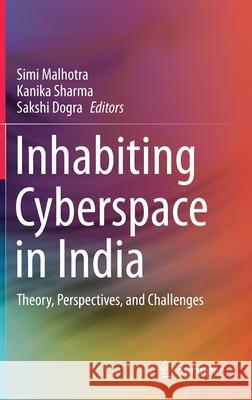Inhabiting Cyberspace in India: Theory, Perspectives, and Challenges » książka
topmenu
Inhabiting Cyberspace in India: Theory, Perspectives, and Challenges
ISBN-13: 9789811599330 / Angielski / Twarda / 2021 / 129 str.
Inhabiting Cyberspace in India: Theory, Perspectives, and Challenges
ISBN-13: 9789811599330 / Angielski / Twarda / 2021 / 129 str.
cena 451,10
(netto: 429,62 VAT: 5%)
Najniższa cena z 30 dni: 424,07
(netto: 429,62 VAT: 5%)
Najniższa cena z 30 dni: 424,07
Termin realizacji zamówienia:
ok. 16-18 dni roboczych.
ok. 16-18 dni roboczych.
Darmowa dostawa!
Kategorie:
Kategorie BISAC:
Wydawca:
Springer
Język:
Angielski
ISBN-13:
9789811599330
Rok wydania:
2021
Wydanie:
2021
Ilość stron:
129
Waga:
0.40 kg
Wymiary:
23.39 x 15.6 x 1.12
Oprawa:
Twarda
Wolumenów:
01
Dodatkowe informacje:
Wydanie ilustrowane











